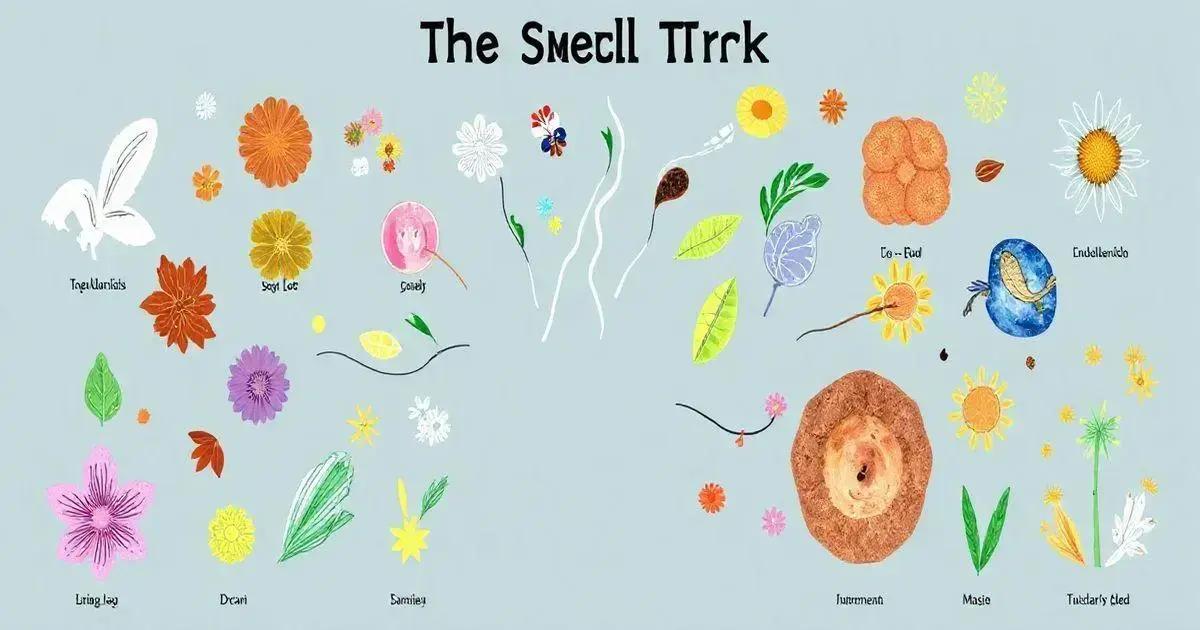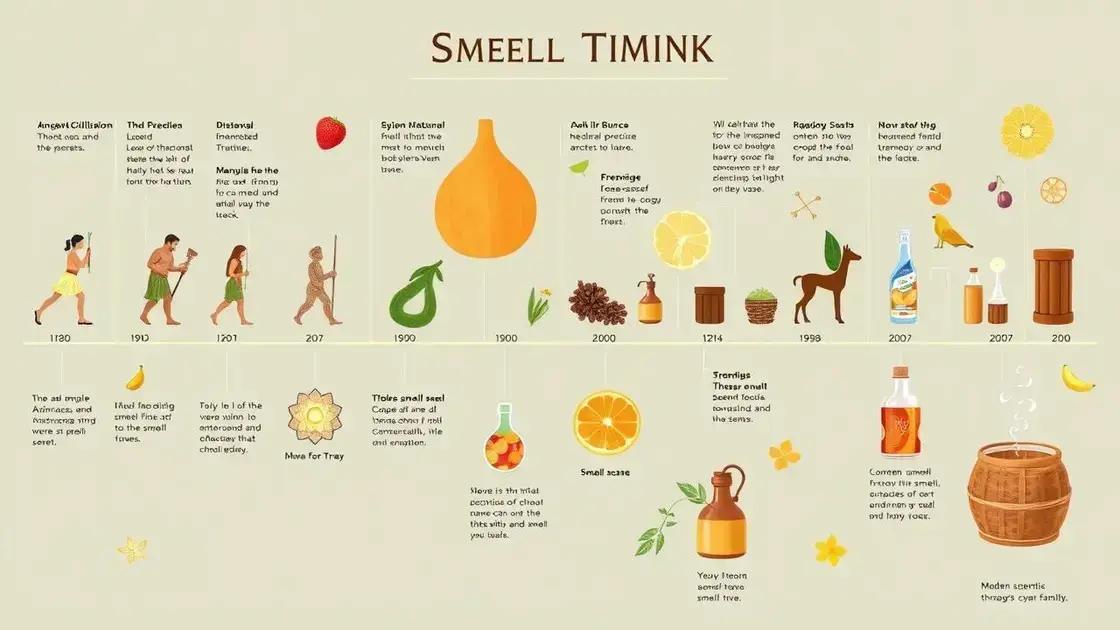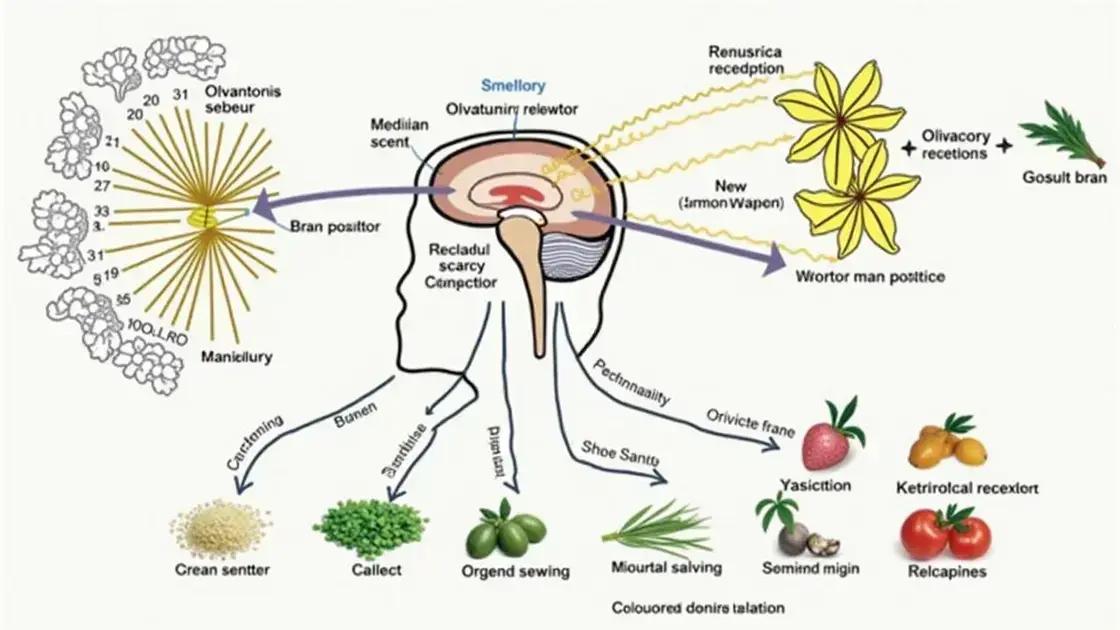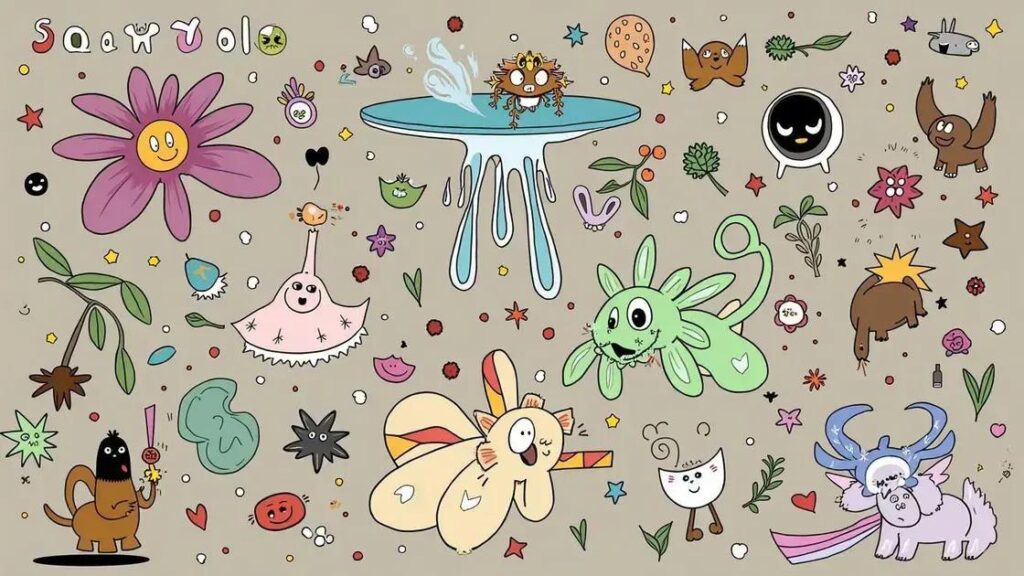The Smell Trick is a fascinating phenomenon where specific scents can evoke strong memories and emotions, influenced by the connections between smell and the brain’s limbic system. This impact extends across cultures, playing significant roles in rituals, traditions, and marketing, while also contributing to wellness through practices like aromatherapy.
Have you ever wondered about the origin of the Smell Trick? This fascinating phenomenon combines science and culture in intriguing ways. From ancient stories to modern interpretations, the Smell Trick captures the imagination and curiosity of many. In this article, we will delve deep into its history, the science behind it, and its significance in different cultures.
Understanding the Smell Trick

The Smell Trick refers to the intriguing ability of certain smells to evoke memories and emotions. When we encounter a particular scent, it often triggers vivid recollections of past experiences. This remarkable phenomenon ties back to how our brains process scents compared to other senses.
How Smell Works
Our sense of smell, or olfaction, involves detecting airborne chemicals. When we breathe in, these chemicals bind to receptors in our noses, sending signals to the brain. Unlike visual and auditory information, which first goes through the thalamus, smell has a direct path to the limbic system, the part of the brain that handles emotions and memories.
The Role of Memories in Smell
This direct connection explains why certain smells can instantly bring back vivid memories. For example, the scent of fresh-baked cookies might remind someone of their grandmother’s kitchen. The emotional responses tied to these memories can be powerful, often evoking feelings of nostalgia.
Understanding the Psychological Aspect
Certain smells are also linked to psychological responses. For instance, pleasant scents can lift our mood and create a sense of comfort. Conversely, unpleasant odors may trigger stress or discomfort. This dynamic interplay between smell and psychology is key to understanding the Smell Trick.
Historical Context of the Smell Trick

The historical context of the Smell Trick reveals fascinating insights into how scents have influenced human culture. Throughout history, different civilizations have placed great importance on smells. Ancient Egyptians, for example, used fragrant oils and incense in their rituals and burials. They believed that these scents helped the soul navigate the afterlife.
Ancient Civilizations and Scent
In ancient Greece, philosophers like Aristotle wrote about the power of smell. They noted how aromas could influence emotions and behaviors. This understanding of scents was crucial in shaping cultural practices and daily life.
Medieval and Renaissance Periods
During the medieval period, the use of scents expanded. People began using perfumes to mask unpleasant smells in their homes and during public gatherings. By the Renaissance, the trade of aromatic substances such as spices and essential oils flourished. The development of scent not only enhanced personal hygiene but also became a symbol of wealth and status.
Modern Era and Scientific Understanding
As society progressed into the modern era, scientific inquiry into smell began to emerge. Researchers started to uncover the chemistry of scents and how they interact with our senses. This scientific lens transformed our understanding of the Smell Trick, showing it to be more than just a cultural artifact.
Scientific Explanation of the Smell Trick

The scientific explanation of the Smell Trick lies in the complex interactions between our brains and the scents we encounter. When we smell something, molecules travel through the air and enter our noses. These molecules attach to specific receptors in the olfactory epithelium, which is located at the top of the nasal cavity.
Olfactory Receptors
Humans have around 400 different types of olfactory receptors, each sensitive to various chemical compounds. When these receptors are triggered, they send signals through the olfactory bulb and into the brain, specifically the limbic system and the cortex.
The Limbic System
The limbic system is a critical part of the brain. It is involved in processing emotions, memories, and smells. This connection explains why certain scents can evoke powerful memories or feelings. For instance, the smell of rain might remind someone of childhood days spent outside.
Neurological Pathways
These neurological pathways help account for the unique experiences we have with different smells. Studies show that the brain processes smells much faster than sights or sounds. As a result, scents can dictate immediate emotional responses before we consciously recognize them.
Impact of Smell on Behavior
Research has also shown that smell can impact behavior. Pleasant scents can improve mood and increase relaxation, while unpleasant odors can lead to stress and discomfort. This complex relationship between smell, emotion, and behavior highlights the significance of the Smell Trick in our lives.
Cultural Significance of the Smell Trick

The cultural significance of the Smell Trick is evident across various societies and traditions. Throughout history, different cultures have recognized the power of scents in rituals, celebrations, and daily life. Smells often play a role in shaping identities and influencing social interactions.
Rituals and Traditions
In many cultures, certain smells are integral to rituals. For instance, in India, the scent of incense is prevalent during religious ceremonies. This aroma is believed to purify the air and create a sacred space, enhancing spiritual experiences. In other cultures, food aromas, like freshly baked bread or spiced dishes, can bring families and communities together during festivals.
Symbolism of Scents
Scents also carry symbolic meanings. For example, the smell of lavender is often associated with calmness and relaxation. In Mediterranean cultures, olive oil has a rich scent that signifies peace and abundance. These associations showcase how scents can represent values and beliefs within different societies.
Influence on Relationships
The Smell Trick also affects personal relationships. People often connect with others based on shared scent experiences. For instance, the familiar smell of a loved one’s perfume can invoke feelings of comfort and safety. This is why scents are often used in marketing to enhance brand loyalty and memory.
Contemporary Practices
Today, aromatherapy and natural scents are popular for enhancing well-being. Many people use essential oils to reduce stress or improve mood. This modern practice reflects the enduring cultural significance of scents and their ability to influence our emotions and behaviors, making the Smell Trick relevant in today’s society.
Understanding the Lasting Impact of the Smell Trick
The Smell Trick demonstrates how deeply interconnected our senses are with emotions, memories, and culture. From ancient rituals to modern aromatherapy, the influence of scents on individuals and societies is profound.
By recognizing the historical and scientific underpinnings of the Smell Trick, we can appreciate its continued significance in our daily lives. Whether it’s the nostalgic scent of a loved one’s kitchen or the calming aroma of essential oils, smells have the power to shape our experiences.
As we navigate a world rich in scents, embracing this understanding can enhance our emotional well-being and foster connections with others through the wonderful world of aromas.
FAQ – Frequently Asked Questions about the Smell Trick
What is the Smell Trick?
The Smell Trick refers to the phenomenon where certain scents evoke strong memories and emotions due to their connection to the brain’s limbic system.
How does smell influence emotions?
Scents have a powerful impact on emotions because they are processed in the brain’s limbic system, which is responsible for emotional responses and memory.
Are there cultural practices related to smell?
Yes, many cultures incorporate scents into rituals and traditions, using them to enhance spiritual experiences and bring people together during celebrations.
What role does scent play in marketing?
Scent is often used in marketing to create memorable experiences and evoke positive emotions, influencing customer preferences and brand loyalty.
Can scents be used for well-being?
Yes, aromatherapy utilizes essential oils and scents to promote relaxation, reduce stress, and improve overall well-being.
How does the science of smell work?
When we smell something, molecules bind to olfactory receptors in the nose, sending signals to the brain that trigger memories and emotional responses.













